Finding Hope: Empowering Patients’ Kidney Care Journeys
About 850 million people are living with kidney disease globally; we estimate nearly 10 million of them have reached end-stage kidney disease and require access to dialysis or transplant.1
Being diagnosed with kidney disease can be an overwhelming diagnosis and raises a lot of stressful questions for patients and their loved ones.
• What care options do I have access to, and do they match my needs?
• How will this impact my family and friends?
• Will I still be able to do the things I enjoy?
Based on individual clinical needs and lifestyle preferences, people with kidney disease may sequence differently through their care journey from pre-dialysis management to dialysis (peritoneal dialysis (PD) or hemodialysis (HD)) and, hopefully, transplant. One commonality all patients have—no matter where they live in the world—is the need for adequate education about kidney disease and treatment options. Patients who understand their care options often feel empowered to ask informed questions when working with their healthcare team.
When kidney patients receive the correct information at the right time and feel supported with access to equitable care options, challenging questions can be addressed, and life can be embraced.
Learn more from the inspiring stories of some incredible individuals around the world who are finding hope and empowerment on their kidney care journeys.
Mr. Yu, Hong Kong
Mr. Yu is an explorer. A self-described hiking enthusiast, he’s trekked more than half of Hong Kong’s roughly 300 mountains and counts additional peaks in Shenzhen, China, and a country tour of Japan to his achievements. After learning he had kidney disease and would require dialysis, however, he wondered if his days of adventure were at an end.
Yu also worried about being responsible for his in-home PD treatments, but his concerns were soon at ease. He credits his new nightly dialysis routine with enabling him to live a lifestyle of his choosing during the day.
“Dialysis has enabled me to continue achieving my dream, to keep going," Yu said.
With the encouragement of family and friends, he was also able to continue pursuing his passion for hiking, and a sense of joy returned.
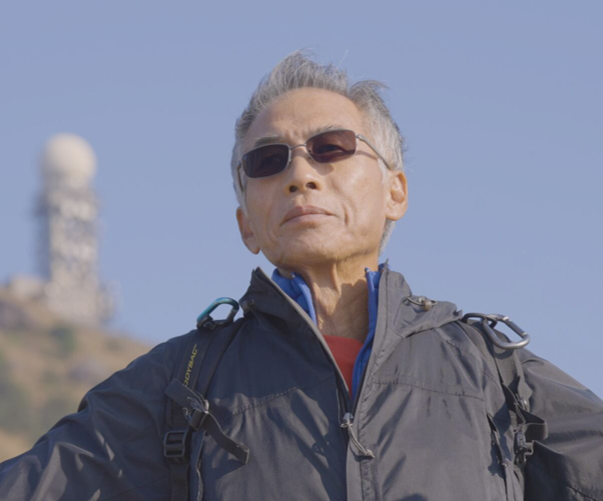
There's a saying, 'Your attitude determines your altitude.' Years of hiking experiences have taught me that even if the path ahead seems impassable, there's always light at the end of the tunnel.
Domenico, Italy
Domenico recently set out on an ambitious motorbike ride that covered nearly 250 miles a day across Italy. His planned stops were in Pavia, Tuscany, Abruzzo, Molise, Puglia, the Amalfi Coast, and finally at his birthplace of Calabria.
At each stop on Domenico's more than 1,800-mile trek, the kidney care supplies needed for his daily PD were waiting for him at his hotel. The option to have his PD supplies delivered to each of the planned destinations helped Domenico further embrace his love of travel and motorbiking.
His friends and travel companions are the other reason for his perseverance. "They pushed me to raise the bar… to demonstrate that a dialysis patient is a normal person."
After an initial diagnosis of kidney disease at age 13, Domenico did not require dialysis until he was 27. At that time, he was asked to give up contact sports. As a karate champion, this represented the loss of a dream. Now in his 40s, Domenico said:
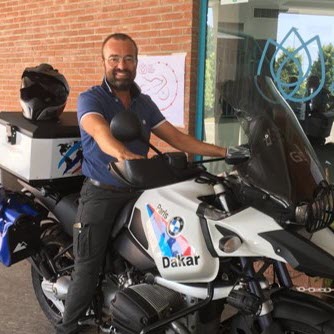
Kidney disease does not stop me. You can have a very normal life if you want it, with the collaboration of your family and [your healthcare provider].
Following his motorbike tour of Italy, Domenico received a kidney transplant, allowing him to start a new journey.
Taiylor, United States
Taiylor is no stranger to the power of community. Throughout her life, she has managed Alport Syndrome—a genetic disorder that can affect blood vessels in the kidney—all with the support of her mother, friends, and now, strangers all over the world.
Like many people with complex health diagnoses, Taiylor sought information and a community, so she created one. She began reaching out to others via social media and researching treatment options that best suited her lifestyle and clinical needs.
"I had never met anyone with Alport Syndrome. And when my condition progressed to needing dialysis, I also didn’t know people my age on dialysis or with a transplant," Taiylor said.
After her condition required dialysis, Taiylor's kidney care journey began with an urgent start on HD. Interested in what other therapy options were available to her, she advocated for her transition to PD. PD provided her the flexibility to be a yoga instructor, kids' gymnastics teacher, nanny, and food truck host while also working toward her college degree.
Taiylor's friend was so inspired by her journey that she registered as a living kidney donor through the Paired Kidney Exchange in the United States. While her friend's kidney was not a match, Taiylor received a transplant from another donor in the exchange program a month later.
Today, Taiylor continues to leverage the power of her community by being an advocate for all kidney patients.
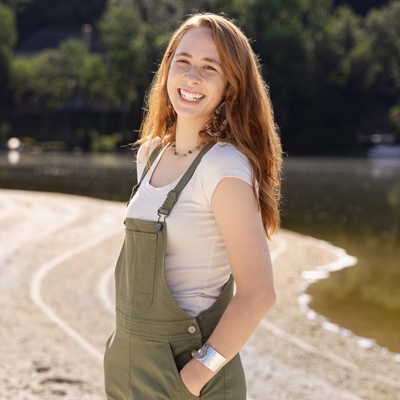
All patients deserve to know what is happening to them, which is why patients need to share their experiences.
Ray, Australia
Ray is a devoted husband, father of four, grandfather of 12, and passionate advocate for the Aboriginal People of Australia. He is retired now but worked for the Australian Electoral Commission while on dialysis. This involved travelling to remote parts of Australia to encourage Aboriginal Australians to enroll to vote in elections, and to encourage them to work as volunteers in electoral booths, something he is very passionate about.
With a career that required travel to locations across the country, Ray's kidney disease diagnosis initially brought concern about not being able to do a job he was passionate about and the ability to support his family. With reassurance from his doctor, Ray decided to initiate home PD therapy and quickly found the process straightforward for him. The flexibility to do PD treatments at night, while sleeping, meant Ray was able to maintain his chosen routine with family and work.
Because Ray had access to kidney care options, he was able to continue pursuing his passions.
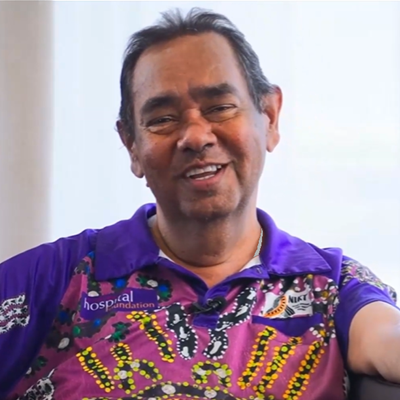
My legacy is my commitment to the Aboriginal Torres Strait Islander Peoples, my love for my children and grandchildren, and my wife.
Nuria, Spain
Nuria is a busy mom who likes to travel with her family. As a kidney patient, Nuria was challenged by her lack of flexibility when she was on HD, having to be at the hospital for therapy three days a week at a fixed time each day. Working with her healthcare team, Nuria was able to transition to PD, which allows her to perform nightly therapy at home while sleeping.
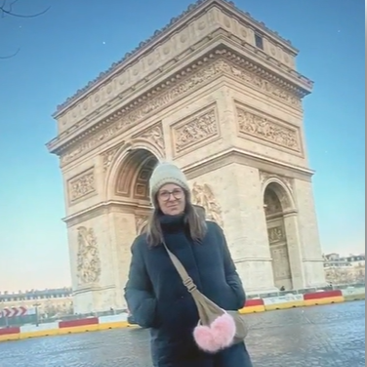
PD has given me a new lease on life; I don’t have to go to the hospital every Monday, Tuesday and Friday, and I have the ability to go away for a weekend.
Nuria and her family recently returned from a trip to Disneyland Paris. "We had been to Disneyland before, but I knew my daughters were excited about the opportunity to return," Nuria added.
Nuria was a bit apprehensive about the trip, given her therapy requirements, but her doctor told her it was not a problem to go. She then started the process of arranging for her therapy supplies to be shipped to the hotel in Paris. When they arrived, the hotel manager escorted them to their room where her supplies for therapy were waiting.
"They gave us our room; we dropped off our stuff; we grabbed an Uber and went to see Paris," Nuria commented. "I couldn’t be more grateful because PD has given me back my life."